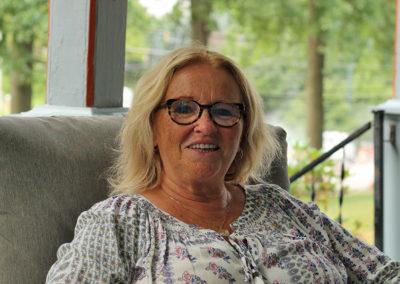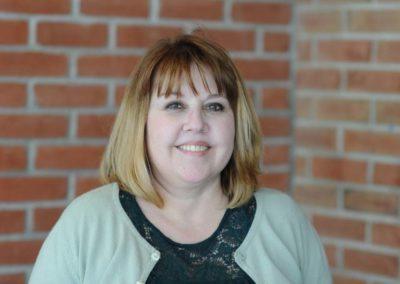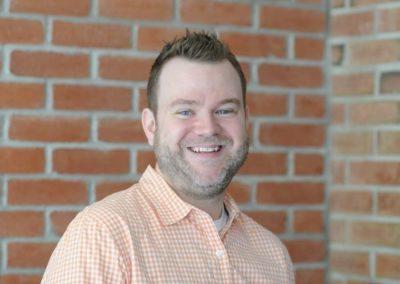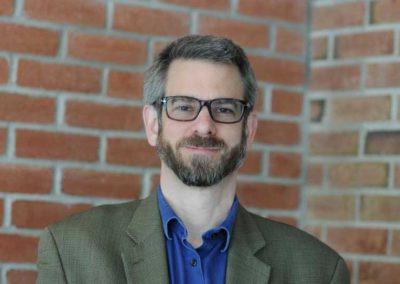Psychology, B.S.
Psychology Degree
Learn to understand human behavior and prepare for careers in the fields of business, education, health, and human services.
Why Study Psychology?
Connect one-on-one with faculty, fellow students, and other professionals through classroom instruction, hands-on learning, and internships:
- Learn about emotions, personality, the brain and behavior, motivation, intelligence, health, and group behavior.
- Participate in courses that will provide you with research and analytical skills.
- Engage with faculty and mentors and present undergraduate research at national conferences.
- Gain practical experience during various internship opportunities.
- Pursue graduate studies in areas like psychology, counseling, social work, education, law, or business.
Receive personalized attention and top-notch instruction in a supportive environment:
- Our Stairs to Success developmental plan for success will guide you through your time at Keystone.
- 100% of students receive financial aid.
- Over 175 scholarships are awarded yearly.
Career Options
- Career Counselor
- Child & Family Social Worker
- Health Services Manager
- Market Research Analyst
- Recreational Therapist
What can I do with a psychology degree?
Employers appreciate the skills and abilities, knowledge base, and personal traits of students who major in psychology. A psychology degree does not train you to be a professional psychologist but you will be qualified for many other career paths and opportunities.
Employers
- Commonwealth Health
- Commonwealth of Pennsylvania
- Friendship House
- Geisinger Health Network
- Women’s Resource Center
Juvenile Justice Institute
The JJI gives students the opportunity to use evidence-based, trauma-responsive programs designed to help area children and reduce delinquency and juvenile incarceration.
Program
Program Goals
GOAL 1 Content Knowledge and Applications
1.1 Describe key concepts, principles, and theories in psychological science.
1.2 Develop a working knowledge of psychology’s major subfields.
1.3 Portray significant aspects of the history of psychological science.
1.4 Apply psychological content to solve practical problems.
1.5 Provide examples of psychology’s integrative themes*
GOAL 2 Scientific Inquiry and Critical Thinking
2.1 Exercise scientific reasoning to investigate psychological phenomena.
2.2 Interpret, design, and evaluate psychological research.
2.3 Incorporate sociocultural factors in scientific research practices.
2.4 Use statistics to evaluate quantitative research findings.
GOAL 3 Values in Psychological Science
3.1 Employ ethical standards in research, practice, and academic contexts.
3.2 Develop and practice interpersonal and intercultural responsiveness.
3.3 Apply psychological principles to strengthen community and improve quality of life.
GOAL 4 Communication, Psychological Literacy, and Technology Skills
4.1 Interact effectively with others.
4.2 Write and present effectively for different purposes.
4.3 Provide evidence of psychological literacy.
4.4 Exhibit appropriate technological skills to improve communication.
GOAL 5 Personal and Professional Development
5.1 Exhibit effective self-regulation
5.2 Refine project management skills
5.3 Display effective judgment in professional interactions
5.4 Cultivate workforce collaboration skills
5.5 Demonstrate appropriate workforce technological skills
5.6 Develop direction for life after graduation
Exceptional experiences.
Giant outcomes.
12:1
Keystone student-to-faculty ratio
8%
increase in jobs over the next 10 years
$82,180
Median annual salary for psychology careers

Amazing opportunities—on campus and beyond
From internships and experiential learning opportunities to travel and conferences, you’ll have many opportunities to conduct real-world experiences, work with your peers and mentors in your chosen field, and learn first-hand the latest skills to succeed in the real world.
Research
Engage with faculty and mentors and present undergraduate research at national conferences.
Internships
Connect with professionals through hands-on learning and internships.


Connections
Students in the CJ/Psychology Club participate in individual projects, observe group demonstrations, and attend the many conferences and other excursions.
Follow CJ/Psychology on Social Media!
Featured Faculty

Marie Andreoli, PhD

Deborah Doyle Belknap, JD, PhD

William Chase II, PsyD

Steven R. Howell, PhD
You Belong at Keystone
Become part of the Keystone family!
